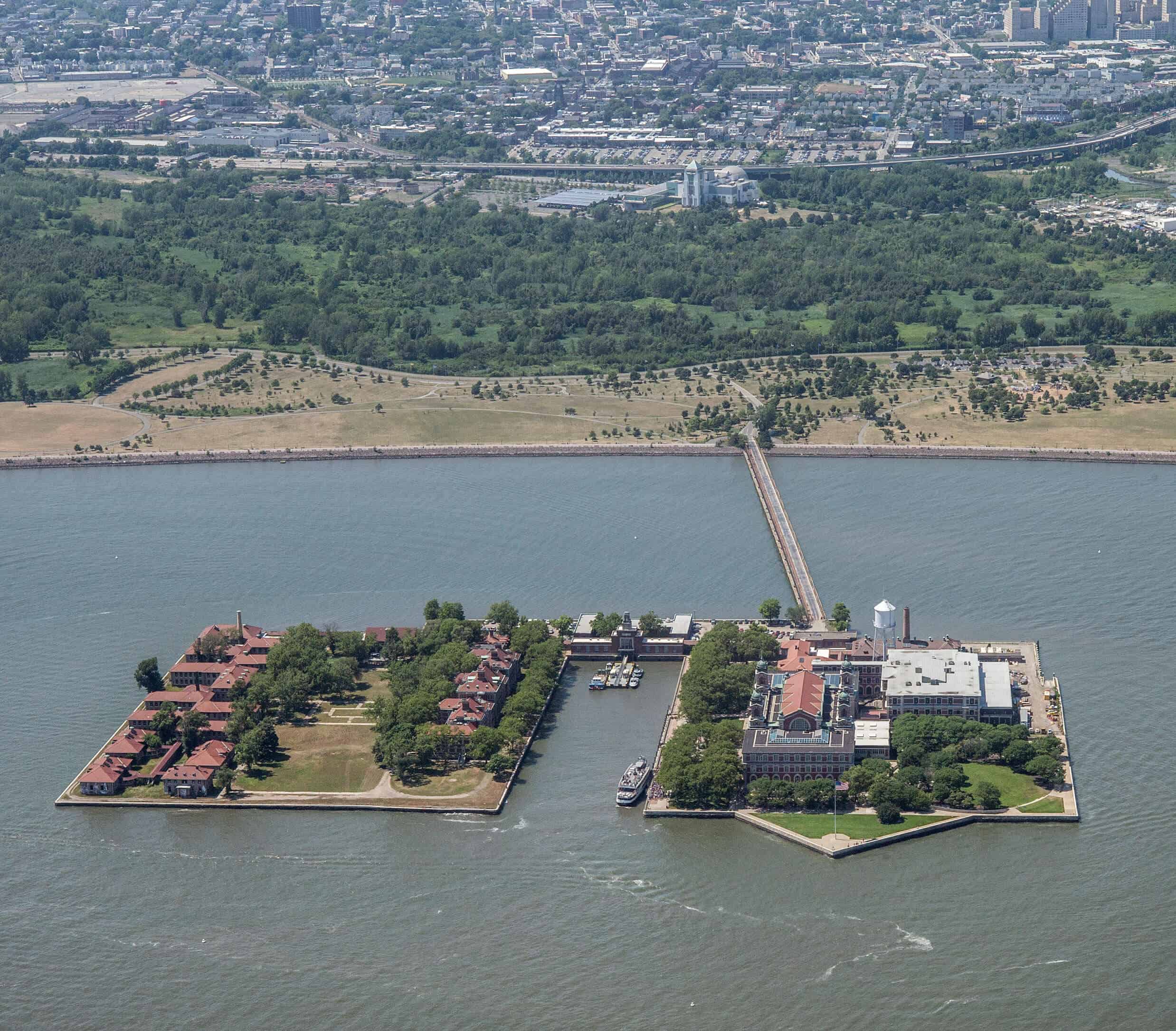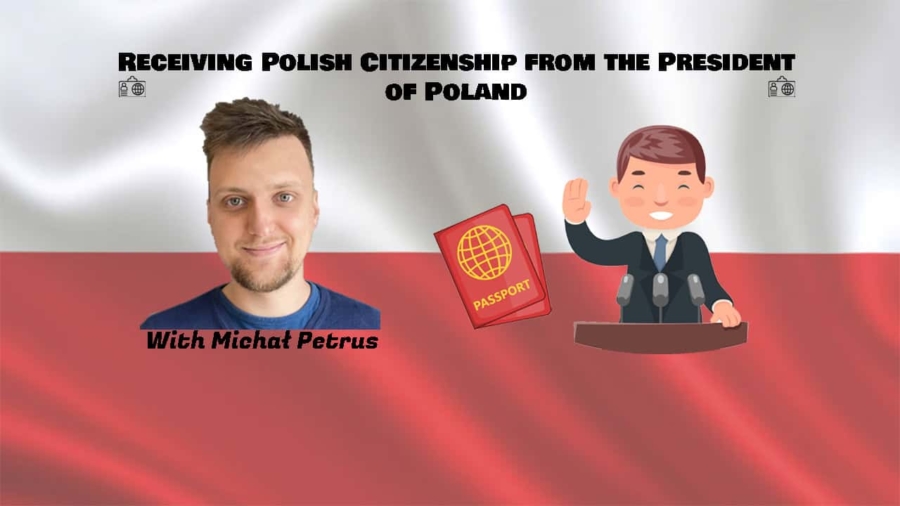This interview with Polish Citizenship Specialist, Michał Petrus, on the topic of how to best go about obtaining Polish citizenship from the President of Poland follows on from our recent discussions about securing Polish citizenship for British citizens of Polish descent and indeed US citizens with Polish ancestors. Moreover, we have talked about obtaining Polish citizenship through Jewish ancestry.
As Michał touched upon during the interview, there is still hope if your application for Polish citizenship through descent was rejected. You can still present your connections to Poland, your family history and your professional merits to the President of Poland. If you tick the right boxes, there is a good chance you will be granted Polish citizenship.
Michał is interested in history and genealogy. He’s been handling cases connected with confirmation of Polish citizenship by descent and presidential citizenship since 2019. He represents Your Roots in Poland, a genealogical and citizenship company based in Kraków.
1. First of all, what kinds of people have a realistic chance of obtaining Polish citizenship from the President of the Republic of Poland?
❝ To make presidential applications as successful as possible, we usually strive to emphasise the Polish ancestry that the client has and their individual merits.
Essentially, we work hard to build a PR case. We outline that somebody is working with Polish NGOs or that someone is attempting to learn Polish. They don’t necessarily need to have mastered the language or taken an exam. In this case, it would be handy to get a letter from a Polish language school to prove they have attended and their level, even if it’s A1 beginner level.
Finally, we also ask our clients to submit evidence of their professional merits, educational background and what they plan to do in Poland.
In reality, everything that is not applicable for obtaining Polish citizenship by descent, for example, not having to speak the language nor having to reside in Poland, helps when it comes to building a PR case for the acquisition of Polish citizenship from the President.
With regard to presidential Polish citizenship applications, we’ve observed a higher approval rate during the Presidency of Andrzej Duda. I don’t know what the main reason behind this is. However, one of the contributing factors might be to do with the number of people who, prior to Duda’s presidency, applied without any merits or knowledge of the Polish language. Many of these people came from Asia and Eastern Europe and they were just working in Poland. Such cases were dismissed.
Nowadays, applicants are much better prepared when it comes to applying for Polish citizenship through the President. It’s important to prove your basic merits and connection to Polish ancestry. The success rate may not match that of other methods of applying for Polish citizenship. Nevertheless, the chances of getting Polish citizenship granted by the President are rather high if the applicant is willing to develop a PR case.❞
2. So it is very much a myth that only highly accomplished individuals and sportspeople apply for presidential Polish citizenship?
❝ I am fully aware of this myth. Such cases are very “showy”. They end up in newspapers and on social media. Of course, celebrities have it easier when it comes to obtaining Polish citizenship from the President. However, it’s more than possible to be granted Polish citizenship by the President even if you’re not a sportsperson or famous celebrity.❞
3. Have you handled many cases involving spouses of Polish citizens who try to fast track their way to Polish citizenship by applying through the President of Poland rather than applying on the basis of marriage together with a period of continuous residence in Poland?
❝ I haven’t encountered such cases. Spouses of Polish or European citizens can travel freely within the EU and reside in the EU based on the 2004 EU Citizenship Directive. This directive allows family members of EU citizens to move and reside in the EU. In other words, the directive protected families from being separated.
In Poland, being married to a citizen reduces the length of time needed to acquire citizenship through residency to only five years. Therefore, if you’ve mastered the language, applying through marriage and residency is certainly much safer and more concrete than applying for Polish citizenship from the President. This route is not based on an arbitrary decision through the Chancellery of the President but rather a specific set of laws.❞
4. Do plenty of people who, for whatever reason, may have received a rejection when applying for Polish citizenship by descent try their hand at obtaining Polish citizenship through a presidential grant?
❝ I believe such cases are very good material for applying for Polish citizenship again – through the President – and there is no legal objection to it.
Of course, such applicants are already in a privileged position as they should have most of the documents which prove Polish ancestry or proof of citizenship.
Let’s say that your ancestor served in the Korean War from 1950 and lost Polish citizenship in the process. This one year of difference may make all the difference to some descendants applying for Polish citizenship through descent because military service abroad wasn’t penalised with the loss of citizenship from 1951. However, all hope is not lost because the said descendants still have some convincing material to apply for Polish citizenship from the President.
Again, it’s just a case of adding a personal touch to the application – working with NGOs, learning Polish and showing one’s merits.❞
5. What kind of documents are required by the Polish Government to support an application for presidential citizenship?
❝ Generally speaking, with presidential applications, we mostly encounter situations in which ancestors emigrated before 1920. It’s also common that our clients or we, as archival researchers, cannot locate firm citizenship documents like population censuses and voters’ lists. Therefore, we usually base presidential applications on vital records – birth, marriage and death certificates. These records may not help with applications for Polish citizenship by descent. However, for presidential applications, one can show that their ancestor was born on the territory of Poland to Polish parents. This is enough to prove lineage.
On the American side, we also see ship manifest records – lists of passengers arriving into the US, as well as the records from Ellis Island.* It’s also possible to supply an ancestor’s declaration of intention for naturalisation in the US. In this declaration, an ancestor would have stated that they do come from Poland, when and from what port they left and whether any of their family members remained in Poland.❞
* Why is Ellis Island so famous?
Located in New York Harbour, Ellis Island was once the busiest immigrant inspection and processing station in the United States.
Between 1892-1954, over 12 million immigrants arrived in the United States via Ellis Island. Ellis Island processed more immigrants than all other North American ports combined. Today, tens of millions of Americans can trace at least one forefather to Ellis.
After 1924, the only passengers brought to Ellis Island were those who had issues with their paperwork, as well as war refugees and displaced persons requiring assistance.
The Statue of Liberty—Ellis Island Foundation website has a searchable database for New York arrivals between 1820 to 1957. It comprises 65 million searchable records, allowing Americans to examine immigration documents and find connections to their ancestry and heritage.

6. Does the Polish Government want to know a great deal about the background and character of applicants applying for Polish citizenship through a Presidential grant? What should applicants highlight in their “motivational statement” with regard to their background and character?
❝ A major part of the application for Polish citizenship from the President should outline why the applicant wants Polish citizenship. We can write this statement, of course. However, I believe the best approach is to work together with the client to produce the most authentic and personal touch.
To back up this statement, we ask clients to provide some letters of recommendation. For instance, it would be helpful to get letters about your personality and professional merits from people who are already Polish citizens.
We’ve recently been working on one application with a client who has connections to the video game industry in Poland. She actually did some voiceovers and promotional work for video game companies. Those companies are run by Polish citizens. Therefore, we have some great letters from the Presidents of those tech companies which emphasise that our client is very professional and a great person to work with. Crucially, the letters state that they do recommend the President of Poland to grant her citizenship.❞
7. Is it necessary to know the Polish language to apply for citizenship via the President, especially for the purposes of holding a conversation during an interview at one’s consulate or voivodeship office in Poland?
❝ With Presidential applications, we are still the proxies in Poland which do the work for clients. The correspondence address in Poland is our address and we will fill out all the forms. Essentially, the Presidential chancellery receives the motion with attachments and letters of recommendation so our clients don’t have to prove their Polish language skills to any government officials.
If the President approves an application, the applicant would need to report to the appropriate Polish consulate. However, consular officers do speak English so applicants don’t have to know Polish to apply for a passport based on the documents they receive from their proxy.❞
8. Is it essential for applicants for Polish citizenship through the Polish President to prove their involvement in the Polish community, such as working in a community centre or another organisation?
❝ We definitely recommend doing such a thing. It is hugely beneficial to a client’s application if they are working with an NGO, of which there are plenty in America due to the strength of the Polish community.
It’s also not a bad idea to do some work for the Polish Catholic Church. There are plenty of Polish parishes in cities like Chicago. Working with such churches, applicants for Polish citizenship from the President can ask the priest or the parish in general to write a letter of recommendation.
Of course, I’m not saying that you have to be affiliated with the Catholic Church to be granted Polish citizenship through the President. The key thing here is that the priest works as a public person and is most likely a Polish citizen himself. Therefore, the priest’s letter of recommendation can be just as valuable as a letter from the boss of a company.❞

9. In your experience, how long is the processing time when applying for Polish citizenship through the President of Poland?
❝ The waiting time is definitely a downside of Presidential applications. Unfortunately, the process has no specific deadline and it’s not defined by an administrative code as is the case with other legal procedures. This is because the President grants citizenship basically on a whim. Therefore, we aren’t in the position to make calls to the Presidential chancellery to follow up on an application. It’s just a case of waiting patiently for the outcome.
Generally speaking, the waiting time to receive Polish citizenship from the President is about two years.❞
10. Given that obtaining Polish citizenship through a presidential grant is not subject to the Code of Administrative Procedure and is thus fully discretionary, what frustrations do applicants tend to experience with regard to deadlines, contact with the relevant authorities and any possible appeals if an application is rejected?
❝ We carry out a robust vetting process for all of the cases in order to minimise the frustration and negative emotions connected with the applications.
With Presidential applications, it’s vital for us to inform clients right from the get-go that we can’t do any follow-ups and that the waiting time is usually around two years but may be longer. We also encourage clients to work on as many aspects of their applications as possible, such as learning Polish or working with NGOs. If our clients take our advice on board, they don’t usually get frustrated further down the line.
Regarding any appeals process, it’s not possible to file an administrative appeal if the President of Poland rejects an application for Polish citizenship. However, it is possible to apply again if one’s application for Polish citizenship from the President has been rejected. In fact, there is no limit to the number of times one may apply for presidential citizenship.❞
11. Does the Polish Government inform applicants as to the reasons why their application has been rejected?
❝ Unfortunately not. It’s just a case of the Chancellery of the President informing applicants that their application has been rejected.❞

